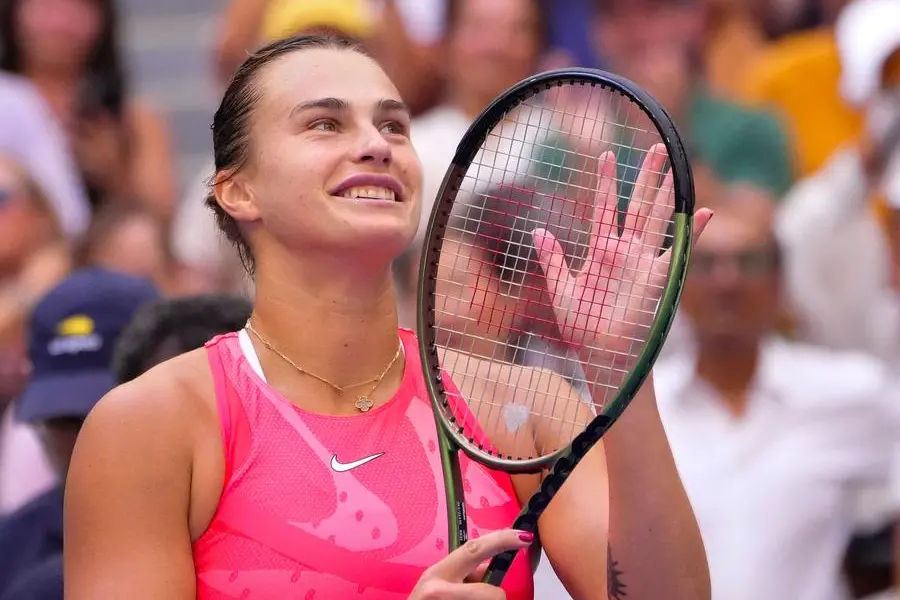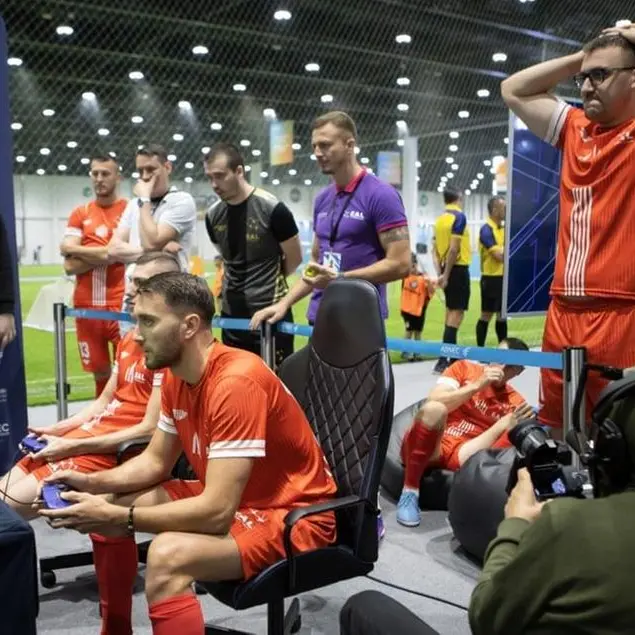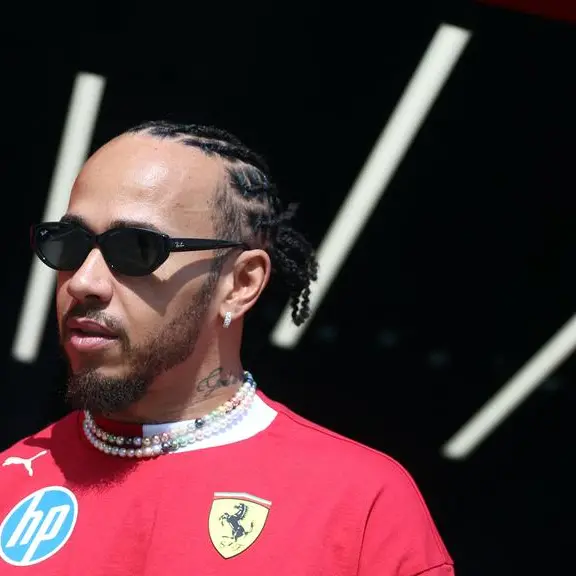PHOTO
No. 2 seed Aryna Sabalenka stormed into her third straight U.S. Open semifinal with a 6-1, 6-4 victory against No. 23 seed Qinwen Zheng of China on Wednesday in New York.
Next up for the 25-year-old Belarusian is a matchup with 17th-seeded U.S. player Madison Keys, who downed ninth-seeded Marketa Vondrousova of the Czech Republic 6-1, 6-4.
Sabalenka has yet to drop a set in Flushing Meadows and never faced a break point during her 73-minute quarterfinal win against Zheng.
"I think I definitely played great tennis today," Sabalenka said in her on-court interview. "Super happy with the performance. I have myself another opportunity to do better in the semis."
Sabalenka reached the final four at all four Grand Slam events this season, winning the Australian Open and losing in the semifinals at the French Open and Wimbledon. Serena Williams was the last woman to make all four Grand Slam semifinals in 2016.
Sabalenka started fast in sunny conditions, winning 22 of the first 27 points to open up a 5-0 lead. She converted 3 of 7 break chances, including the seventh game of the second set, to take control.
Zheng, 20, was playing in her first major quarterfinal and finished with 13 winners and 16 unforced errors.
Sabalenka lost in the semifinals at New York to Leylah Fernandez in 2021 and Iga Swiatek in 2022.
Keys, 28, is also headed to her third U.S. Open semifinal. In her only career Grand Slam final, she lost to Sloane Stephens in 2017, and she fell to eventual champion Naomi Osaka of Japan in the 2018 semifinals.
Against Vondrousova, Keys won the first five games to cruise through the first set. The second set was tighter, with Keys saving four break points to reach 4-4, then getting the only service break to go up 5-4. She subsequently closed out the victory on her third match point.
Vondrousova had won 11 consecutive Grand Slam matches, including her run at Wimbledon, where she became the first unseeded woman to capture the title.
"I knew (Vondrousova) was going to be a tricky player," Keys said. "She gets so many balls back and puts you in so many difficult positions. I knew it wasn't going to be my cleanest match, but I knew I'd have to get to the net and be aggressive and try to be on my front foot the whole time."
Overall, Keys saved all nine break points she faced while converting all three of her break opportunities.
Now, Keys will try to solve Sabalenka.
"She's been amazing this year," Keys said. "There's a reason she's going to be No. 1 in the world on Monday, but it's going to be a lot of hard hitting, not a lot of long points and honestly just going to try to buckle up and get as many balls back as I can."





















